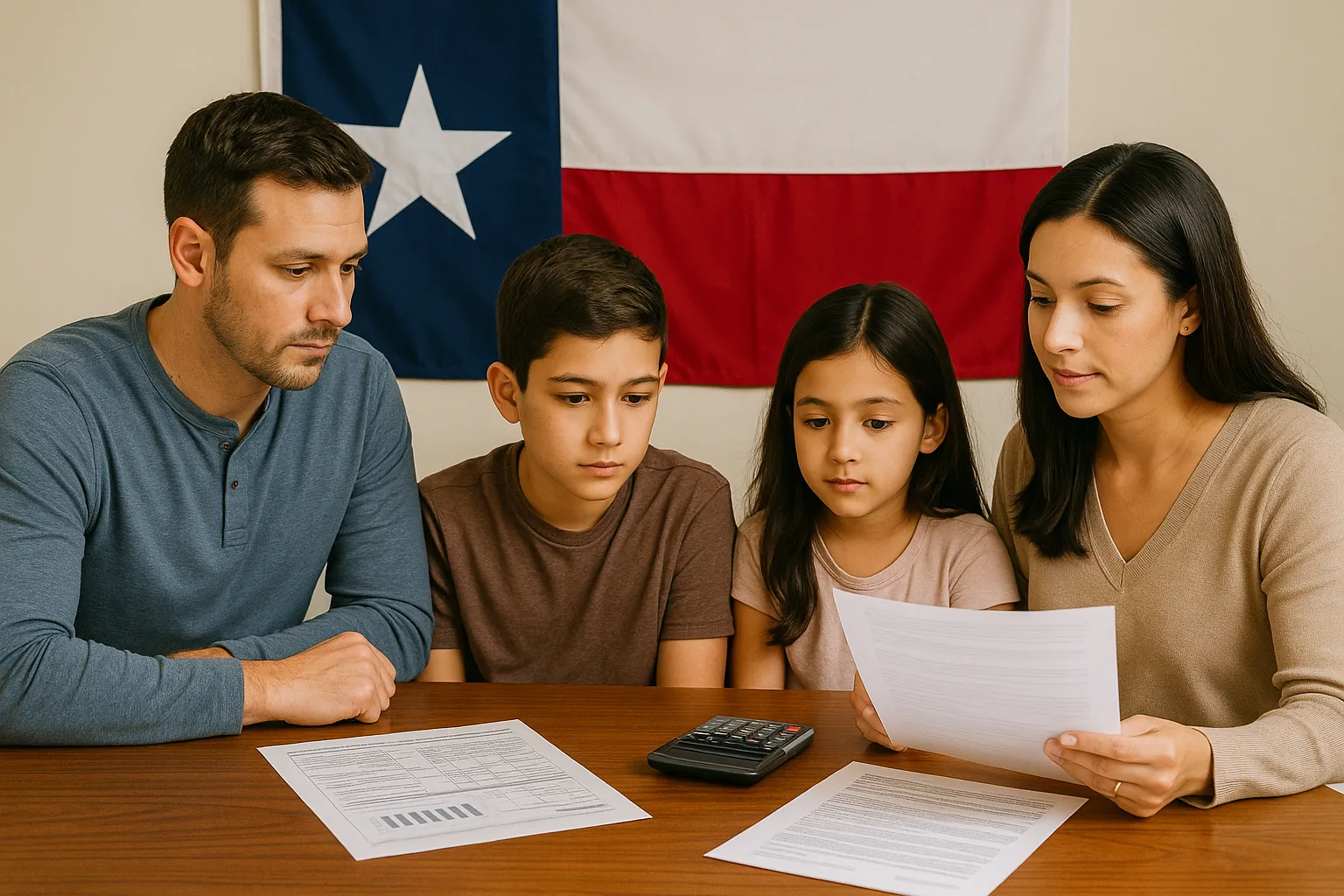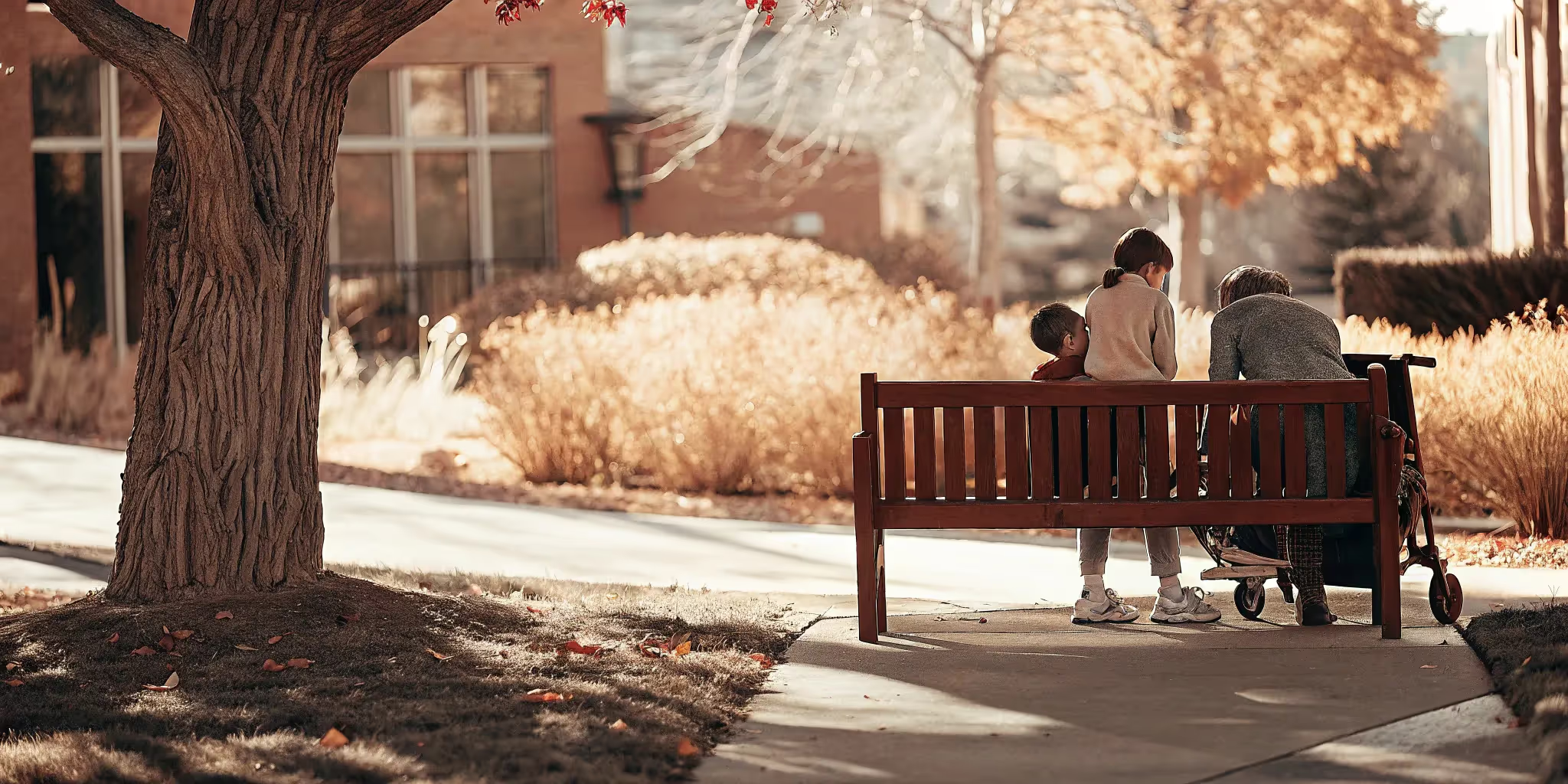Your Guide to Autism Resources in Longmont, Colorado

When a family receives an autism diagnosis for their child, their world shifts. Their first question is often, "What do we do now?" As their BCBA, you are in a unique position to provide not just clinical expertise, but also direction and hope. Handing them a list of vetted, local contacts can make an overwhelming journey feel manageable. This article is built to be that resource for you and your clients. It breaks down the essential autism resources in Longmont, Colorado, covering everything from early intervention and IEP support to recreational activities and financial aid, giving you a practical tool to guide families from day one.
Key Takeaways
- Build a support network beyond therapy: A truly effective plan integrates ABA with educational support from the St. Vrain Valley School District, community programs, and vocational training to support individuals in all aspects of their lives.
- Use local organizations as your starting point: Simplify your search by beginning with trusted hubs like the Autism Society Boulder County, which offers a comprehensive directory of vetted therapists, support groups, and recreational activities in the Longmont area.
- Secure a formal diagnosis to access services: A professional evaluation is the essential first step that unlocks everything else, from developing a school IEP to securing the insurance coverage mandated by Colorado law for treatment.
Finding Autism Support in Longmont
Navigating the world of autism support can feel overwhelming, but Longmont has a strong network of resources to help families and individuals thrive. Whether you're looking for therapy, community connections, or help with costs, here’s a breakdown of where to start.
Available Services and Programs
Longmont offers a wide range of programs designed to meet the unique needs of individuals with autism. A great starting point is the Autism Society Boulder County, which keeps a comprehensive list of local resources, from therapy and educational support to recreational activities for all ages. This makes it easier to find the right fit for your family or clients. For those seeking Applied Behavior Analysis (ABA) therapy, centers like Action Behavior Center provide individualized care to help children develop crucial life skills. Their approach focuses on creating a supportive environment where children can learn and grow at their own pace, making them a key provider in the area.
Who to Know: Key Organizations and Centers
Connecting with the right organizations can make all the difference. The Autism Society Boulder County (ASBC) is a cornerstone of the local community, working to connect families with resources and each other. They are dedicated to helping people with autism lead fulfilling lives and are an invaluable first call for anyone new to the area. For adults, the Division of Vocational Rehabilitation in Longmont is another essential contact. This state agency provides services to help adults with disabilities find meaningful employment and build independent lives. Fostering this kind of self-sufficiency is a critical part of long-term support and community integration for many individuals on the spectrum.
Covering the Costs: Insurance and Financial Aid
Understanding how to pay for services is a major hurdle for many families. Fortunately, Colorado has strong legislation in place to help. A state law requires many health insurance plans to cover essential autism services, including diagnostic assessments and treatment. This has been a game-changer for accessing consistent, high-quality care. Most private health plans, as well as Colorado Medicaid (Health First Colorado) and TRICARE, are required to provide this coverage. For a detailed breakdown of what’s covered and how to access these benefits, you can check out this helpful guide to autism benefits and services in Colorado. This can help you and your clients manage the financial side of care.
Find the Right Therapy in Longmont
Finding the right therapeutic support is a cornerstone of creating a comprehensive care plan for any child. Longmont offers a variety of specialized services, from ABA to physical therapy, ensuring you can connect families with the best-fit providers for their unique needs. As a BCBA, knowing the local landscape helps you build a strong referral network and collaborate effectively with other professionals. Whether you're looking for a primary therapy provider or complementary services to support your treatment plan, the city has a solid network of dedicated specialists ready to help children thrive. Let's walk through some of the key therapy options available in the area.
Applied Behavior Analysis (ABA) Programs
Longmont is home to some excellent ABA providers focused on evidence-based care. For instance, Action Behavior Center (ABC) provides ABA therapy with a focus on individualized attention for each child's specific learning style. They prioritize getting kids into therapy quickly, recognizing that early intervention makes a significant difference. Their programs are designed to help children with autism improve vital communication and social skills while also strengthening their ability to follow directions. When you're referring a family or looking for a center to partner with, finding one that aligns with your commitment to high-quality, personalized care is essential.
Speech and Occupational Therapy
Beyond ABA, many children benefit from integrated speech and occupational therapy to support their development. The Autism Society Boulder County is a fantastic starting point for finding local specialists. They list numerous providers in the Longmont area. One great example is Kid Skills Pediatric Therapy, which offers occupational therapy in a fun, engaging way. They provide services at their clinic, on a farm, or even in a family's home, offering the flexibility that many families need. These services can be a powerful complement to the behavioral goals you're working on.
Mental Health Support
Comprehensive care often includes mental health support for both the child and their family. In Longmont, you can find a range of psychiatry, psychology, and counseling services tailored for individuals on the autism spectrum. These professionals can help with co-occurring conditions like anxiety or provide families with coping strategies and support. For advocacy and additional resources, the Association for Community Living (ACL) of Boulder is an invaluable organization. They offer crucial support and advocacy services that empower families and help them get the resources they need to succeed.
Physical Therapy Options
Physical therapy can be another important piece of the puzzle, helping children improve their motor skills, balance, and coordination. Longmont has multiple physical therapy providers who work with children with autism. For a unique and motivating approach, you can also find several local programs that offer animal-assisted therapy. These centers use horses or other farm animals to create a therapeutic experience that is both fun and effective. It’s a wonderful option for kids who connect well with animals and can make therapy feel less like work and more like play.
Access Educational Support and Resources
Helping families with the educational system is a huge part of supporting a child with autism. Longmont offers a range of programs designed to help students succeed, from early intervention through high school. As a BCBA, you can guide families through their options and help them advocate for their child's needs. Here’s a look at the educational support available in the area.
Early Intervention Programs
Getting support early can make a world of difference. Early intervention programs provide therapies and resources as soon as a diagnosis is made, which can significantly improve long-term outcomes. In Colorado, organizations like the Autism Society of Colorado and Soar Autism Center offer valuable resources for young children and their families. These programs address developmental needs and build foundational skills, setting a strong precedent for future learning.
Special Education Services
Once in the school system, children have a right to a supportive learning environment. Longmont public schools must provide special education services for students with disabilities, including autism. This is formalized through an Individualized Education Program (IEP), a legal document detailing the child’s needs and the school's services. An IEP ensures every child receives the right accommodations, like modified assignments or aide support, helping them access the curriculum and thrive.
School District Programs
Longmont is part of the St. Vrain Valley School District, which has a structured process for identifying educational disabilities and providing support. A team of educators and specialists assesses each child’s unique profile to develop a tailored plan. This collaborative approach ensures students with autism receive consistent support. By working with the district, families and their care teams can create a comprehensive strategy that addresses both academic and developmental goals.
Get Help with IEP Development
The IEP process can feel complicated for parents, and an IEP advocate can be an incredible asset. These professionals help families understand their rights, interpret evaluations, and collaborate with the school on an effective plan. If a family feels their child's needs aren't being met, hiring an IEP advocate can provide much-needed guidance. An advocate ensures the parents' voices are heard and that the final IEP is truly tailored to their child’s success.
Connect with Family and Community Support
Connecting clients with strong family and community support systems is a cornerstone of effective and holistic care. Beyond therapy sessions, these networks provide the daily encouragement, practical help, and sense of belonging that are crucial for long-term success. For families navigating an autism diagnosis, knowing where to turn for guidance, shared experiences, and even just a fun Saturday activity can make all the difference. Longmont is home to a variety of organizations dedicated to building this supportive web. From parent training workshops to unique recreational programs, these resources help reinforce the skills you work on in therapy and empower families to thrive.
Parent Training and Resources
Empowering parents with knowledge and tools is one of the most impactful things we can do. The Autism Society of Boulder County is an excellent starting point for families in Longmont. They act as a central hub, connecting individuals and their families to a wide range of services tailored to their specific needs. Their comprehensive resource directory is particularly helpful for finding everything from therapists to support groups. Guiding parents to this organization can help them feel more confident and capable as they support their child’s development, making them stronger partners in the therapeutic process.
Local Support Groups
Finding a community of people who understand can be a game-changer for families. In Longmont, several organizations offer this kind of vital support and advocacy. The Association for Community Living (ACL) of Boulder is a key resource, working to ensure families have access to the services and support they need to navigate their journey. For adult clients, the Division of Vocational Rehabilitation can be an invaluable partner in achieving independence through employment. Pointing families toward these local support systems helps build a network of advocates and peers, reducing feelings of isolation and creating a stronger foundation for success.
Recreational Activities
Therapy doesn't just happen in a clinic. Longmont offers some wonderful therapeutic recreational activities that allow for skill-building in a fun, engaging environment. Equine therapy, for example, can be a powerful tool for emotional and physical development. Organizations like the Colorado Therapeutic Riding Center, Front Range Hippotherapy, and the Medicine Horse Program provide incredible opportunities for individuals to connect with animals while working on their goals. These community programs offer a refreshing change of pace and can help generalize skills in a natural setting, making them a fantastic supplement to your treatment plan.
Social Skills Development
Building social skills and fostering meaningful relationships are often central goals in ABA therapy. Longmont has educational programs specifically designed to support this development outside of one-on-one sessions. These programs focus on teaching the nuances of friendships, practical life skills, and social communication in a structured, supportive group setting. By participating, your clients can practice their skills with peers, build confidence, and form genuine connections. Recommending these specialized programs can provide an essential real-world context for the skills you’re targeting in therapy, helping your clients build a rich and fulfilling social life.
Explore Services for Adults
The transition to adulthood is a significant milestone, and for individuals with autism, it often means shifting from school-based support systems to a new array of adult services. This phase is all about fostering independence, finding meaningful work, and continuing to learn and grow within the community. The good news is that support doesn't stop after high school. Longmont and the surrounding Boulder County area have dedicated resources designed to help adults with autism build fulfilling lives.
Sorting through these services can feel like a big task, but it helps to break it down into key areas: finding a job, living independently, and pursuing further education or training. Each of these components plays a vital role in creating a well-rounded and independent adult life. The organizations and programs available are there to provide the specific support an individual needs, whether it's hands-on job coaching, help with daily living skills, or guidance on post-secondary educational paths. Let's look at some of the key services available to help adults with autism thrive in Longmont.
Vocational Training
Vocational training is focused on preparing adults for the workforce by teaching them specific, job-related skills. This goes beyond general education and gets into the practical abilities needed to succeed in a particular field. In Longmont, the Division of Vocational Rehabilitation is a key resource that helps adults with disabilities find jobs and develop the skills needed to live on their own. These programs often include career counseling, skills assessments, on-the-job training, and job placement services. The goal is to match an individual's strengths and interests with a sustainable and rewarding career path, providing the foundation for long-term employment.
Independent Living Resources
For many adults with autism, living independently is a primary goal. Adult services are available to make this a reality by providing support tailored to individual needs. This can range from help with daily tasks like budgeting, meal planning, and using public transportation to developing social skills for community integration. The aim is to empower adults to live as self-sufficiently as possible while being active and engaged members of their community. These resources focus on building practical life skills that increase confidence and autonomy, ensuring adults have the tools they need to manage their own homes and lives.
Employment Programs
Once vocational skills are in place, employment programs help with the next step: finding and keeping a job. These services are often more hands-on than traditional job placement agencies. For instance, the Division for Intellectual and Developmental Disabilities (DIDD) offers comprehensive job support, which can include job coaching, creating accommodations with employers, and providing ongoing support to ensure long-term success. These programs may also offer day programs or supported employment settings that provide a structured and encouraging work environment. The focus is on creating sustainable employment that aligns with the individual’s abilities and career goals.
Continuing Education
Learning doesn't end after high school. Continuing education for adults with autism can take many forms, from enrolling in college or a trade school to taking community classes for personal enrichment. While public schools provide support through an Individualized Education Program (IEP), this plan should also include a transition component that prepares students for post-secondary opportunities. For adults, continuing education is about lifelong learning and skill-building. Local colleges may offer supportive programs, and community organizations often host workshops or classes on various topics, providing great avenues for adults to pursue their interests and continue their personal and professional development.
Find Healthcare and Specialists
Finding the right healthcare providers and specialists is a critical step in building a comprehensive support system for your clients. Longmont has a variety of dedicated professionals, from medical centers specializing in ABA to therapists offering unique, alternative approaches. Here’s a look at where you can find medical, diagnostic, and mental health support for families in the area, so you can feel confident in your referrals.
Medical Centers and Providers
When families are looking for ABA therapy, connecting them with a specialized provider is key. In Longmont, Action Behavior Center (ABC) is a well-known option that focuses exclusively on Applied Behavior Analysis for children with autism. Their team is dedicated to creating individualized treatment plans that cater to each child's specific goals and developmental needs. By focusing on personalized care, they help children build essential skills in a supportive environment. For BCBAs looking to refer families or simply understand the local landscape, ABC is a significant resource in the community for high-quality, evidence-based therapy.
Diagnostic Services
The journey to getting support often begins with a formal diagnosis, which can be a challenging process for families to manage. To help with this crucial first step, Action Behavior Center provides free autism evaluations, which include the ADOS-2 assessment. This service is a fantastic resource for families who are seeking clarity and need to access necessary services without an immediate financial barrier. Offering this kind of accessible diagnostic support helps remove hurdles and allows families to move forward with creating a care plan and securing the right therapeutic interventions for their child sooner.
Mental Health Professionals
Comprehensive care often includes mental health support from professionals who understand the nuances of autism. The Autism Society Boulder County is an excellent starting point for finding these specialists. Their resource list connects families with a wide range of local mental health professionals, including psychiatrists, psychologists, and counselors who have experience working with the autism community. Having a central, trusted directory like this makes it much easier for families—and the BCBAs guiding them—to find the right therapeutic match for ongoing mental and emotional wellness support.
Alternative Treatment Options
For some children, alternative therapies can be a wonderful complement to traditional ABA and other services. Longmont offers several unique options that engage children in different ways. Equine therapy, for example, is available through organizations like the Colorado Therapeutic Riding Center, Front Range Hippotherapy, and the Medicine Horse Program. These programs use the connection with horses to help build communication, social, and motor skills. For a different kind of animal-assisted therapy, Jen-Lo Therapy Farm provides sessions with other farm animals. These alternative approaches can offer new avenues for growth and engagement.
How to Find the Right Resources for You
Finding the right support can feel like putting together a complex puzzle, but with a clear approach, you can connect with the services that best fit your family’s needs. The key is to move through the process step-by-step, from initial assessments to building a long-term support system. This methodical approach ensures you create a comprehensive care plan that addresses every important area, from therapy and education to community and financial support. Think of it as building a foundation—each step makes the next one stronger and more effective.
Start with an Assessment and Evaluation
The first and most critical step is getting a clear picture of the individual’s specific needs. Before you can access most specialized services or secure insurance coverage, a formal autism diagnosis is required. This assessment is much more than a label; it’s a detailed roadmap that helps identify the most effective interventions and supports. A thorough evaluation will highlight strengths and challenges, providing the essential information needed to create a personalized therapy plan. This diagnostic clarity is the starting point for all effective ABA therapy and ensures that every subsequent step is tailored to the individual.
Coordinate Care and Services
Once you have an assessment, the next step is to coordinate services across different environments, especially between therapy and school. Public schools are required to provide special education for children with disabilities, often through an Individualized Education Program (IEP). This plan outlines the specific supports the school will provide. As a BCBA or caregiver, your role in aligning the goals of an IEP with a client’s ABA program is crucial. Consistent communication between therapists, teachers, and family members ensures that skills learned in one setting are reinforced in others, creating a seamless support system for the child.
Build Your Support Network
You don't have to do this alone. Connecting with a community of peers can provide invaluable emotional support and practical advice. Organizations like the Autism Society Boulder County are dedicated to helping individuals and families connect with local resources and with each other. Building this network gives you a space to share experiences, ask questions, and learn from others who understand your journey. Whether it’s a formal support group, a local workshop, or an online forum, finding your community can make a significant difference in your family’s well-being and resilience.
Access Financial Aid
Understanding the financial side of therapy is a major component of sustainable care. Fortunately, Colorado has supportive legislation in place. A state law mandates that many health insurance plans cover autism services, which helps make essential treatments more accessible. Take the time to thoroughly review your insurance policy and learn about what is covered. In addition to insurance, look into local grants, waivers, and other financial assistance programs. Proactively managing the financial aspects of care can reduce stress and ensure that services can continue without interruption.+
Your Longmont Resource Directory
Navigating local resources can feel like a full-time job. To help you connect families with the right support, I’ve put together a starting list of key organizations and services right here in Longmont. Whether you’re looking for therapy providers, school district contacts, or community support, this directory can point you in the right direction. Think of it as your go-to cheat sheet for building a comprehensive support network for your clients.
Therapy Centers
When families are looking for ABA therapy, the Action Behavior Center in Longmont is a well-known provider. They focus on creating individualized treatment plans designed to help children with autism develop crucial life skills in a supportive environment. Their approach is centered on personalized care, ensuring that each child's unique needs are met through tailored therapeutic strategies. For BCBAs looking to refer clients or collaborate with local centers, they are a key player in the Longmont therapy landscape. Their commitment to one-on-one therapy makes them a valuable resource for families seeking dedicated and focused intervention for their children.
Educational Facilities
For school-aged children, the St. Vrain Valley School District is the primary resource for educational support. The district uses a "staffing" process to identify a student's educational disability and determine the specific services needed to address their needs in the classroom. Understanding this process is essential for advocating for your clients and ensuring they receive an appropriate Individualized Education Program (IEP). Collaborating with the district’s special education department can help bridge the gap between clinical goals and school-based support, creating a more cohesive plan for the child’s development and learning journey.
Support Organizations
The Autism Society Boulder County is an incredible hub for families in the Longmont area. Their website serves as a comprehensive directory, connecting people to a wide range of local resources. You can find information on everything from therapy and educational services to recreational activities and support programs specifically for adults. This organization is a fantastic first stop for families who are new to the area or just beginning their search for support. By directing families here, you can empower them to find the community connections and services they need to thrive beyond their therapy sessions.
Community Programs
For adult clients, fostering independence is often a primary goal. The Division of Vocational Rehabilitation in Longmont is a vital program dedicated to this mission. They work with adults with disabilities to help them find meaningful employment and develop the skills needed to live independently. This service is crucial for helping adults on the autism spectrum transition into the workforce and build fulfilling, self-sufficient lives. Connecting your adult clients with this program can provide them with the practical tools and support they need to achieve their long-term personal and professional goals.
Related Articles
- Complete Guide to Autism Resources in Denver, Colorado
- Complete Guide to Autism Resources in Fort Collins, CO - Alpaca Health
- Autism Resources in Pueblo, Colorado: A Family Guide - Alpaca Health
- Guide to Autism Resources in Aurora, Colorado - Alpaca Health
- Your Guide to Autism Resources in Loveland, CO - Alpaca Health
Frequently Asked Questions
I have a new client family in Longmont who feels lost. What's the best first resource to share with them? When a family is feeling overwhelmed, I always suggest starting with a central hub rather than a long list of individual providers. TheAutism Society of Boulder Countyis the perfect first call. They act as a connector, helping families get a sense of the local landscape and pointing them toward the specific services, support groups, or therapies that are right for them. It’s a great way to get grounded before making bigger decisions.
How can I advise families on managing the cost of autism services in Colorado? The financial piece can be a major source of stress, but Colorado has strong support in place. A state law requires many health insurance plans to cover necessary autism services, including ABA therapy. The best first step is for families to contact their insurance provider directly to understand the specifics of their coverage. This knowledge empowers them to plan for care without worrying about unexpected costs.
What are some local recreational activities that can complement traditional ABA therapy? Therapy doesn't always have to happen in a clinic. Longmont has some wonderful programs that help children build skills in fun, natural environments. For kids who connect with animals, I often suggest looking into equine therapy programs. These centers use horses to help with emotional regulation, communication, and motor skills. It’s a fantastic way to work on therapeutic goals while giving a child a joyful and motivating experience.
A family is having a hard time with the school system. What's the best way to help them secure the right support?Navigating the school system and the IEP process can be tough. Your role in aligning therapy goals with their educational plan is key. If a family feels their concerns aren't being fully addressed by the school, you might suggest they look into hiring an IEP advocate. An advocate is a professional who can help them understand their rights and collaborate with the school district to ensure the child's educational plan is effective and truly supportive.
Where can my adult clients find support for employment and independent living? For adults, the focus often shifts toward building a fulfilling and independent life. The Division of Vocational Rehabilitation in Longmont is a crucial resource for this stage. Their entire purpose is to help adults with disabilities develop job skills, find meaningful employment, and gain the confidence to live more independently. They provide practical, hands-on support that can make a huge difference in an adult’s long-term success.
High Quality, Local ABA
If you are ready to partner with a local BCBA and receive the highest quality of care, reach out today!













